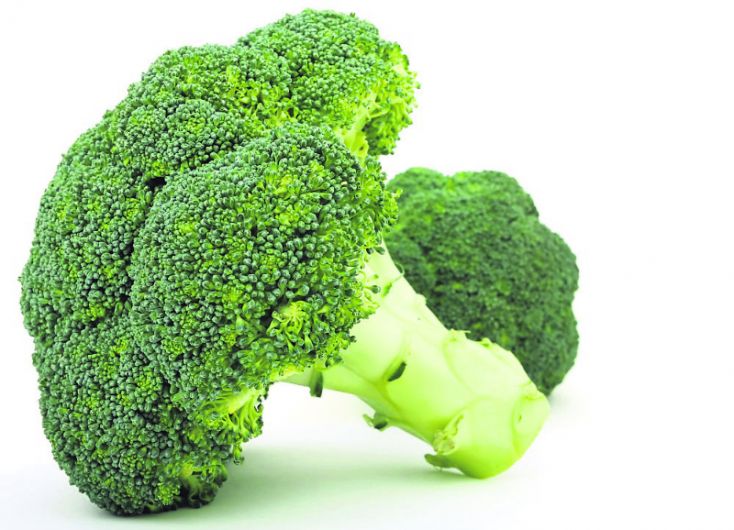As World Cancer Day comes around, we’re told that an average 30,000 Irish people are diagnosed with cancer every year.
For many common types of cancer, at least 70% to 90% are due to external factors. – Professor Kevin McConway
The obesity epidemic is directly related to excessive sugar consumption, and this is also a major driving factor for the cancer epidemic. Sugar also causes chronic inflammation, which raises the risk of cancer. – Dr Joseph Mercola
AS World Cancer Day comes around, we’re told that an average 30,000 Irish people are diagnosed with cancer every year.
A team of doctors from the Stony Brook Cancer Centre in New York made headlines last month when their scientifically-approved research found that the vast majority of cancer cases are caused by factors that are overwhelmingly within our control.
After not smoking, The European Code Against Cancer states that maintaining a healthy weight, via healthy diet and regular activity, is the most important way to reduce your risk of cancer. It advises us to eat more vegetables, oily fish, nuts and seeds, pulses and wholegrains, and avoid sugar and refined or white grains, soft drinks and artificial sweeteners.
Avoid processed meats and excess red meat, trans fats, cooking at high temperatures, excess alcohol and sun exposure, workplace-environmental pollutants, radon in the home, and where possible pesticides and herbicides, x-rays, fumes and plastic food wrappings-water bottles; always accept offers of screening. Get your vaccinations and seek prompt attention for illnesses (some cancers begin with viral/bacterial infections); women should breastfeed where possible, avoid the combined contraceptive pill and limit HRT.
We’re aware of most of these factors, but research is increasingly bringing to the fore considerations that revolve around the issue of inflammation. We know now that when inflammation becomes chronic it lies at the root of pretty much every condition, from PMS, acne and even depression to heart disease, obesity and diabetes, and cancer. As Cancer Research UK reports, ‘inflammation’s dark side is a powerful force in cancer development, where it aids and abets tumour growth and spread around the body.’
The reason why sugar (and refined or white grains, which the body treats in the same way) are yet again the central culprits is firstly because they have an inflammatory effect, secondly because cancer cells need glucose to thrive and, thirdly, because as the well-known doctor Joseph Mercola says they are driving the obesity epidemic. Body fat is actually a biochemically active substance, especially when it’s laid down around the abdomen, storing and releasing hormones such as oestrogen and insulin that can stimulate cancer cell growth.
To address excess weight and balance insulin levels (also reducing your risk of diabetes), Dr Mercola echoes the most recent research. ‘One of the most effective ways is intermittent fasting [eating within a seven or eight-hour window, perhaps skipping breakfast, and not grazing], along with making some basic changes to diet’. He suggests drastically cutting sugar, fructose and refined grain intake while eating more veg and healthy fats.
It all falls into place when you consider that many of the things we need to avoid — sugars, white grains, soft drinks (daily consumption raises risk of prostate cancer by 40% and pancreatic cancer twofold, and was last month shown to increase dangerous visceral/abdominal fat by 30%), artificial sweeteners, trans or hydrogenated fats and the processed foods that contain them, as well as excess red meat and all processed meat (especially pork products) — have an inflammatory effect on the body.
Trans fats, in commercial baked goods and some margarines, are known to cause damage to the cells, and vegetable oils like corn and sunflower are also pro-inflammatory. The best oil for drizzling (not heating) is extra virgin olive oil, while extra virgin coconut or rapeseed oil can be used for frying. All of them are anti-inflammatory, and even more so are the omega-3 fats and vitamin D found in oily fish.
Vegetables, particularly of the yellow-orange-dark green and the blue-purple families are anti-inflammatory because of their detoxifying and antioxidant activity that protects the cells from damage caused by carcinogens and by free radicals. Other anti-cancer items such as turmeric, ginger, cocoa and green tea work in the same way, while some foods (garlic, soya beans, citrus fruits, broccoli and cabbage family etc) have the added ability to seek out and destroy cancer cells or prevent their development.
Fermented foods or a probiotic supplement come into their own here because of the inextricable link between gut bacteria, the immune system and inflammation. Vitamin D has shown activities that include decreasing the growth of cancer cells, preventing spread, reducing blood vessel formation in tumours, and even returning rogue cells to a pre-cancerous state, while a lack of the B vitamins is linked with cancerous cell abnormalities. And exercise will significantly lower your risk not only because it helps with weight control but also blood sugar and hormone balance and, again, reduces inflammation.
Best foods include:
All veg but especially broccoli, brussels sprouts, watercress, kale and other dark leafy greens, onions and garlic, beetroot, sweet potatoes, carrots, butternut squash, shiitake mushrooms, avocadoes, tomatoes, aubergines, peppers, olives, berries and citrus fruit; seaweeds; oily fish; soya beans/edamame; almonds, walnuts, linseeds; fermented and cultured products such as plain bio yoghurt, sauerkraut/kimchi, kefir, kombucha, miso, tempeh etc; turmeric, cloves, chilli, cinnamon, ginger, rosemary, oregano, marjoram, thyme and sage; dark chocolate and cocoa; green tea.
Supplement vitamin D (unless you work outside), B complex, omega-3 (if you don’t regularly eat oily fish), and a good probiotic (unless you regularly eat fermented foods).







